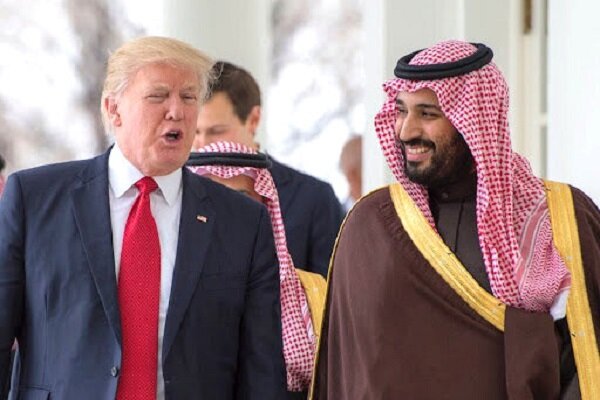Guardian: Saudi Arabia opposes Trump’s threats against Iran.
The Guardian reported on the escalation of tensions between Iran and the United States.
The report states: After US President Donald Trump explicitly threatened to attack Iran militarily if it did not accept US demands regarding its nuclear program, Iranian officials condemned the statements as a violation of the UN Charter.
Trump declared on Sunday: “If Iran does not agree, there will be bombing. A bombing like the likes of which they have never seen.” The threat, which was more severe and explicit than his previous positions, was made after Trump sent a letter to Iran for negotiations. Iranian officials confirmed that they had sent their response via Oman and that they wanted indirect negotiations.
Reactions to Trump’s threats
Esmail Baghai, spokesman for the Iranian Foreign Ministry, considered Trump’s threat a violation of international peace and security and emphasized: Such a threat is a clear violation of the UN Charter and the International Atomic Energy Agency safeguards regime. Violence begets violence, and peace begets peace; America can choose.
Iranian Supreme Leader Ayatollah Ali Khamenei also downplayed Trump’s threats, saying: “We believe it is unlikely that such a threat will be carried out, but if something happens, Iran’s response will be decisive and severe.”
Referring to the presence of American forces in the region, Brigadier General Amir Ali Hajizadeh, commander of the Revolutionary Guards Aerospace Force, said: “No one who sits in a glass house throws stones.” He referred to the deployment of 50,000 American troops in regional bases and warned of their vulnerability.
Saudi Arabia’s explicit opposition to an attack on Iran
The Guardian writes: One of the important points in recent developments is the widespread opposition of the Persian Gulf countries, especially Saudi Arabia, to any US military attack on Iran. Reports indicate that Saudi Crown Prince Mohammed bin Salman intends to declare his opposition to such a move during a meeting with Trump.
Analysts believe that Saudi Arabia’s opposition to attacking Iran stems from its concern about further instability in the region. Diplomatic sources have emphasized that the Saudi government, despite its regional rivalry with Iran, does not see regime change in Tehran as beneficial and is concerned about increasing military tensions in the Persian Gulf.
While some US officials, including Mike Waltz, the US national security adviser, have called for the “destruction” of Iran’s nuclear program, others, such as Steve Whittaker, Trump’s special envoy for the Middle East, have only pointed to the limitations of this program. These differences of opinion within the US government have also further complicated the situation.
It seems that the opposition of Saudi Arabia and other regional countries to attacking Iran will pose a serious challenge to the Trump administration’s aggressive policies and may hinder his plans to apply maximum pressure on Iran.

